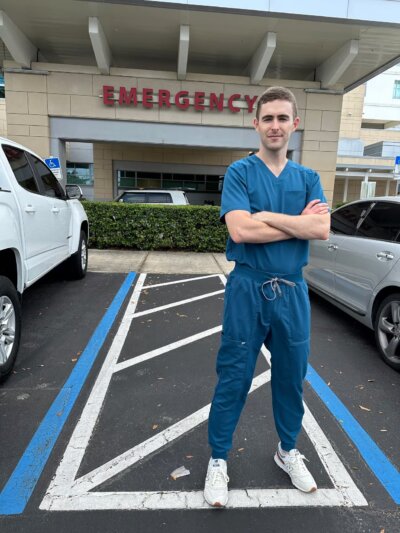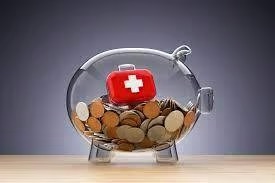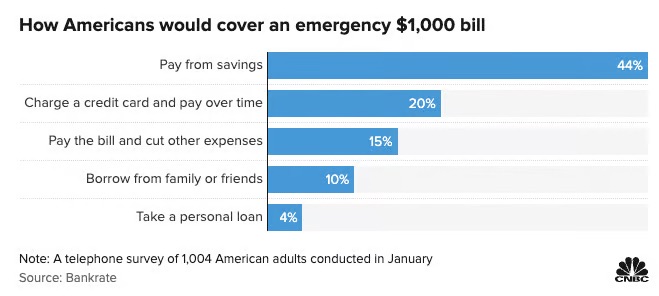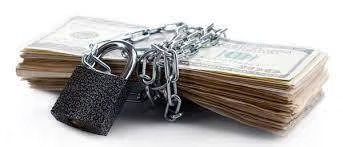Hello friends 😊
Have you ever heard the phrase, “When it rains, it pours”? Well, it’s decided to POUR in the Jake/Ari household…
In the past few months, our AC unit broke – boom $500. Then, our water heater broke – there goes $650. Finally, our mattress started to crap out on us, causing pretty severe back pain – so how about another $1000!

Treating Psychiatric Emergencies by Day & Financial Emergencies By Night 💪🏻
Was it fun spending this much money? Nope, it sucked. BUT… we were prepared. How? Over the last 3 years of earning income, we’ve been contributing to a rainy day fund, also known as an emergency fund, and the mental health benefits of this CANNOT be overstated.
This week, we’re diving into a topic that may not always seem directly related to mental health, but plays a significant role in our overall well-being: financial health.

Financial stressors can weigh heavily on our minds, impacting our mental health in profound ways. Constant worry about financial concerns such as paying bills, unexpected expenses, or looming debts can worsen anxiety and make us more vulnerable to experiencing depression.
According to a recent survey, 56% of Americans can’t cover a $1,000 emergency expense with savings. This statistic shows the importance of financial preparedness and having a safety net in place.

One powerful tool for building financial resilience and reducing stress is the creation of an emergency fund. An emergency fund is a dedicated savings account specifically earmarked for unforeseen expenses// financial emergencies. The goal is to have a readily accessible source of funds to cover unexpected costs without resorting to borrowing or going into debt!
To begin building your emergency fund, it’s essential to calculate your monthly expenses. This includes necessities such as rent or mortgage payments, utilities, groceries, transportation, and any other regular bills or expenses. Once you have a clear understanding of your monthly expenses, you can set specific goals for your emergency fund:
Goal #1: One Month’s Expenses: Start by saving enough to cover one month’s worth of expenses. This provides a financial cushion to handle small emergencies.
Goal #2: Three Months’ Expenses: Aim to gradually increase your emergency fund to cover three months’ worth of expenses. Having a larger reserve provides greater security and protection against more significant financial setbacks.
Goal #3: Six Months’ Expenses: THE ULTIMATE GOAL. Strive to build an emergency fund that can sustain you for six months or more. This level of financial preparedness offers a significant buffer against prolonged periods of unemployment, illness, or other major life disruptions.
When it comes to storing your emergency fund, opting for a high-yield savings account is KEY. High-yield savings accounts typically offer higher interest rates than traditional savings accounts, allowing your money to GROW over time. The peace of mind that comes from knowing your emergency fund is growing can be invaluable.
In conclusion, prioritizing your financial health by establishing an emergency fund is a crucial step towards promoting your mental well-being. By planning for the unexpected and reducing financial stressors, you can cultivate a greater sense of security, resilience, and peace of mind in your life.
Disclaimer: This e-mail message and any content attached to it are for educational and informational purposes only, and nothing herein is intended to be, or shall be construed as, medical, legal, or financial advice. Any reliance on such information is expressly at your own risk.
This Week’s Sources:
www.fdic.gov/resources/bankers/national-rates/index.html
www.cnbc.com/2022/01/19/56percent-of-americans-cant-cover-a-1000-emergency-expense-with-savings.html
https://www.nerdwallet.com/best/banking/high-yield-online-savings-accounts
You Are Not Alone
For you or a loved one to be diagnosed with a brain or mental health-related illness or disorder is overwhelming, and leads to a quest for support and answers to important questions. UBA has built a safe, caring and compassionate community for you to share your journey, connect with others in similar situations, learn about breakthroughs, and to simply find comfort.

Make a Donation, Make a Difference
We have a close relationship with researchers working on an array of brain and mental health-related issues and disorders. We keep abreast with cutting-edge research projects and fund those with the greatest insight and promise. Please donate generously today; help make a difference for your loved ones, now and in their future.
The United Brain Association – No Mind Left Behind





